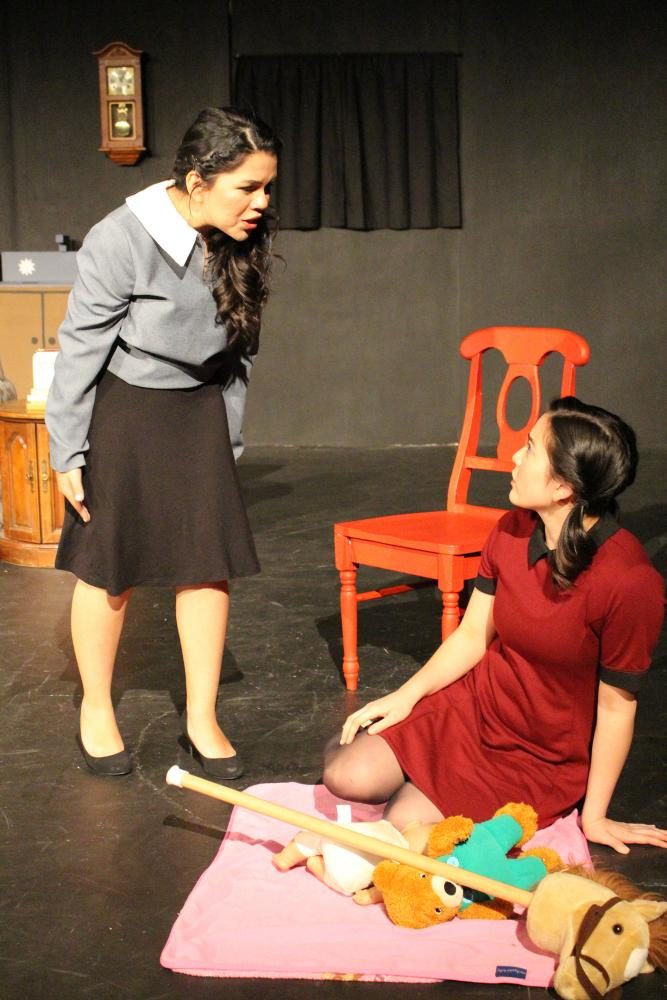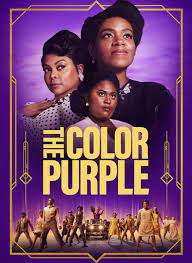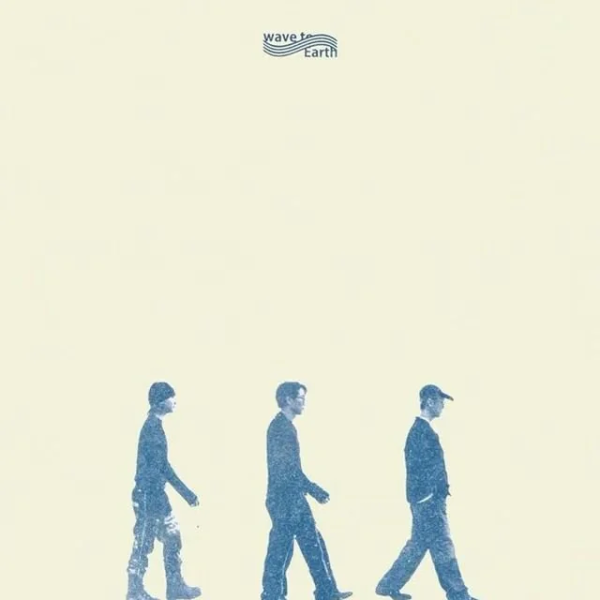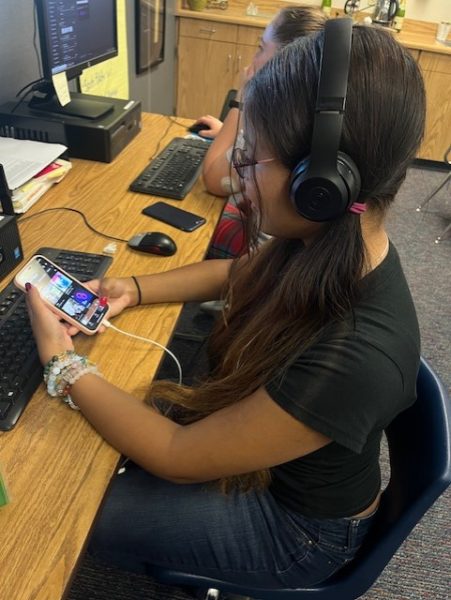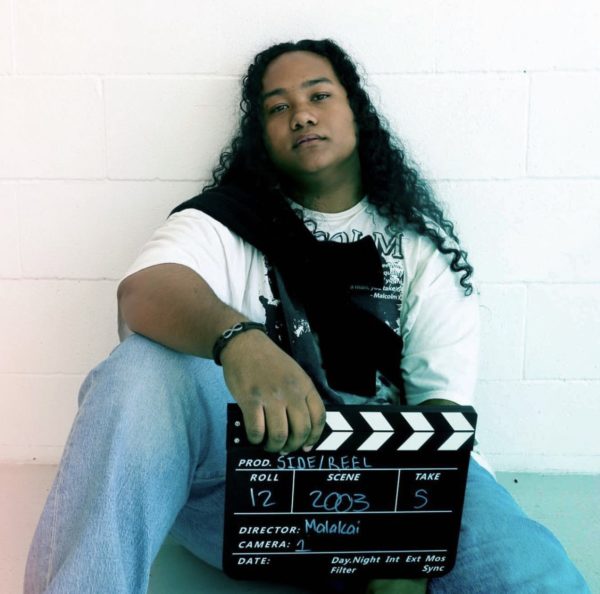Seniors direct One-Acts for final curtain bow
April 26, 2017
I entered the theater to the chilling piano music of significantly slowed childhood lullabies. Wicked West Production’s Night of Turmoil had begun.
The first one-act was titled “Overtones,” written by Alice Gerstenberg and directed by sophomore Sherien Maroufkhani. The scene focused around the interactions of two women engaged in conversation throughout a seemingly casual luncheon. However, the women’s “inner-selves” shared a rather different, more candid banter. This one-act beautifully personified the fight between the darker, “true-selves” of people against the contrasting, reputable appearance that is more often presented to others.
Following a brief intermission, senior Isaiah Mahoney introduced his student directed one-act, “Intruders,” a play written by Ian McWethy. I soon found myself, along with the surrounding audience, growing wary with trepidation as the old, blind man (senior Kevin Simoskevitz) struggles to articulate to his family of the intruder who has entered the house. Originally, Mahoney had perceived this intruder to be a literal trespasser on the family’s property. However, three weeks before opening night, Mahoney was rereading the play when he came upon the revelation that this intruder was no man, but death itself personified. Despite some minor technical errors, the momentous message of the story was left embedded in the minds of those in the audience — that the mere thought of death, if obsessed over, can be enough to drive one mad.
The next one-act would proceed to lead many audience members to the brink of tears. “Stroke Static,” written by Lindsay Price and directed by senior Nathan Ajel, followed the internal fight of an aging man, Russ (Eduardo Gonzales), to distinguish the past from the present. “In the beginning it was just about losing yourself in memories,” Ajel says, “but I started to realize it was more about family, about how fantasy and reality can produce this battle…that it can affect everyone around you.” The minimal props and innovative use of light poignantly visualizes Russ’ confusion. After all, it’s not often a high school production can achieve in stirring such intense emotions within its audience. I tip my hat to you, Ajel.
The final act ended the evening with a bang, quite literally. Written by Maxwell Anderson and directed by senior Rory Flynn, “Bad Seed” is a story depicting how naivety and blind trust from absolute love can lead to one’s ultimate self-induced destruction. Flynn himself described this play as “messed-up” and even “torturesome.” Throughout the entire performance, the audience was held in rapt attention. After every new turn of events I was sucked deeper into the plot — could sweet Rhonda (sophomore Samantha Beidler) really have committed murder? — until I, along with the rest of the audience, erupted with a tumultuous gasp. An earnest, almost desperate “No!” echoed through the theater upon this final ominous scene. The intricacies of dramatic irony and the fragile manner of maintaining an air of suspense and mystery throughout the prolonged performance was truly artful, and I commend Flynn on his insightful directing.
After the show concluded, performers, family members, friends and directors all lingered outside the theater to congratulate one another and revel in the beautiful feeling that accompanies the finale of weeks of hard work. However, this night represented something a bit more profound. For these senior directors, it was the culmination of many years of dedication, passion and growth.
Flynn has been nurturing his acting abilities since a fateful day in elementary school, in which his friends encouraged him to audition for the school play. After having originally replied with, “I dunno about that,” he was the only boy to audition and landed the role. After the first time performing, Flynn “just lost it and fell in love.”
When Mahoney was a “shy” and “shaky” freshman entering Beginning Drama, he had no idea how much the class and the art of acting would mean to him four years later. Now, one day either as a drama teacher or as a professional actor, he’s determined to maintain the prevalence of theater throughout his college experience and future life.
Ajel entered the world of acting a bit later, joining the class his junior year. “[Acting has] grown to be a passion and an outlet,” he says. He has also gained invaluable professional skills from acting as well, such as public speaking and adopting a newfound confidence in the spotlight and on the stage.
Despite the significant lack of sleep and, at times, the overwhelming stress that comes from directing a performance, this experience has allowed these students to understand a new perspective on what happens beyond the curtain. “I’ve learned not to take the director for granted,” Ajel jokingly says, but his words speak truth. A director has to chase their vision of how to best engage the audience in an emotional and compelling manner, and this encompasses a variety of responsibilities such as set production, light and sound management and leading their actors deeper into this shared vision as well.
“Don’t be afraid to lose yourself in acting…lose yourself and become the character,” Ajel advises. “Give your all and leave nothing behind — that’s the way to act.”
The legacy these seniors will leave behind will inspire students for years to come. As Flynn said, “If you’re doing it for fun, do it for fun. If you don’t like it, don’t do it. If you love it, and it really is your everything, don’t give it up. Go for it.”

